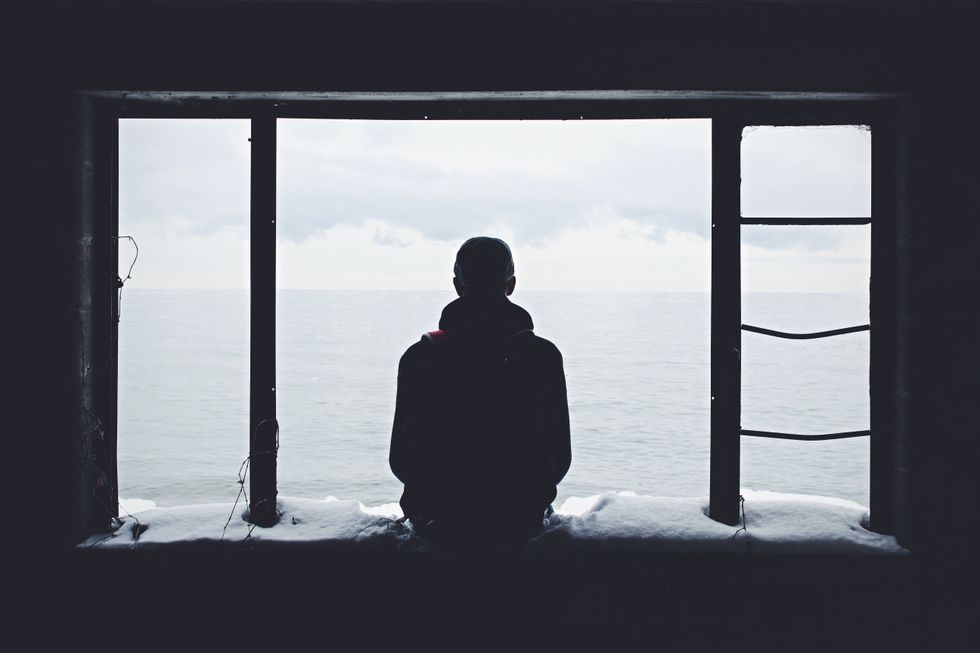I initially meant to start this piece with a "hurt story" – something about depression in my life that would provide a bit of emotional interest and credibility to what I have to say.
However, something about that feels dishonest.
I'm not sentimental in that way, and so to write my "hurt story" would require me to stretch the truth about how I feel in the bad times, when I won't get out of bed to do anything, when I'm still awake at four in the morning.
The truth is, those times when I behave in ways that are most characteristic of depression have never felt like horrible emotional depths. My moment-to-moment experience of depression is cerebral, rational (or at least rationalized). I can still hate myself like only a depressive can, but the kernel of my depression is not really about my emotions at all.
At its core, what I think is most fundamental to my depression is the rationalization of self-destructive behavior. I can't speak to the universal experience of depression—probably no one can—but mine is about justification. I can always justify my depressive behavior to myself.
My depression is the network of bargains I use to explain to myself why I didn't go to class again today, why it's fine that I haven't been outside in days, why I don't really need to work on a resume today. I consider myself extraordinarily lucky that my depression has managed to stay disentangled from substance abuse.
The bargaining character of my depression has left me somewhat ill-served by what is, for the most part, a truly excellent sea change in the character of discussions about mental health.
As we broaden the public character of our mental health, as we make brave strides in dissolving the stigmas surrounding therapy and treatment, I want to make it clear to anyone on the sidelines of this discussion the way I was: my illness is still my problem.
My emotional state only deteriorated to the point that it did because I spent years convinced that ultimately, anything my depression 'made' me do couldn't be my fault.
It's right there in the bargain: You're depressed, it's fine, they should understand, it's the 21st century, and after all, we're more enlightened people.
There is a subtle distinction between understanding an action came from a difficult mental state and absolving the person of their responsibility for acting in that way. It's the difference between rehabilitation and clearing someone of all charges.
Conventional wisdom and advice from well-meaning adults when I was growing up always took the "don't be so hard on yourself!" angle. And, obviously, castigating yourself for every tiny mistake is just as unhealthy.
But there's a balance between the extremes of too much self-flagellation and too little self-discipline, the far side of which I think often goes unmentioned. In my case, a lack of willingness to confront my own responsibility for my actions when I was depressed left me paralyzed for years and still threatens to paralyze me now.
There are still people out there woefully undeserving of the consequences they face due to behaviors that are part of an untreated mental health condition. And there are also those that are in terribly unsupportive environments. My heart still goes out to anyone who's been told to just "get over" their depression.
However, I would hold myself up as an example of what can happen when you take too lenient of an approach with yourself. There is a balance to find, and while I think much has been written on the far side of self-loathing, there are just as many dangers on the side of complacency.
The brute reality that I still have to force myself to confront, and the one that I hope to share with others in my situation, is that I will have to work harder than most just to function. That will never be fair, but it will always be true. I can't just fall off the face of the planet during a depressive episode, and no cocktail of medicine is going to make me wake up feeling ready to face the challenge of putting the brave face on for one more day.
From close friends and family, I might ask for a dose of leniency if I mess up, but I must always ask more of myself. It isn't self-punishment, but rather confidence; I can only ask of myself to do the possible, after all.
Being willing to ask more of myself means confidence in my own capabilities, in the ability to grin and bear it, and to not let a bad day drag me down. It means "I'm depressed" isn't an excuse, but it also means "I've already messed up" isn't an excuse either. It is the other side of self-esteem, not only believing that I am worth something no matter what, but that I can be better than I am now as well.
My illness is my problem. With confidence, a commitment to myself, and treatment, I can solve it.






 The minimum wage is not a living wage.
StableDiffusion
The minimum wage is not a living wage.
StableDiffusion
 influential nations
StableDiffusion
influential nations
StableDiffusion












